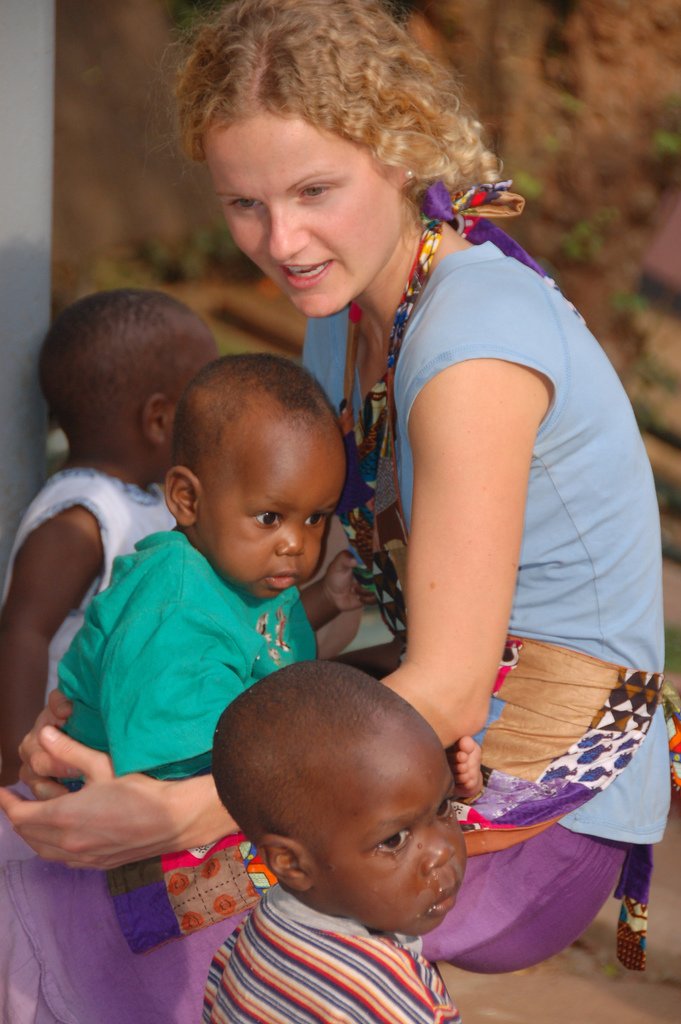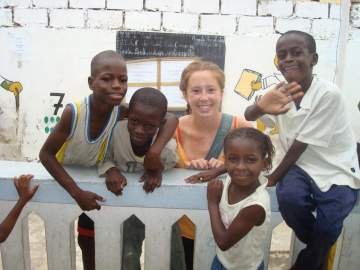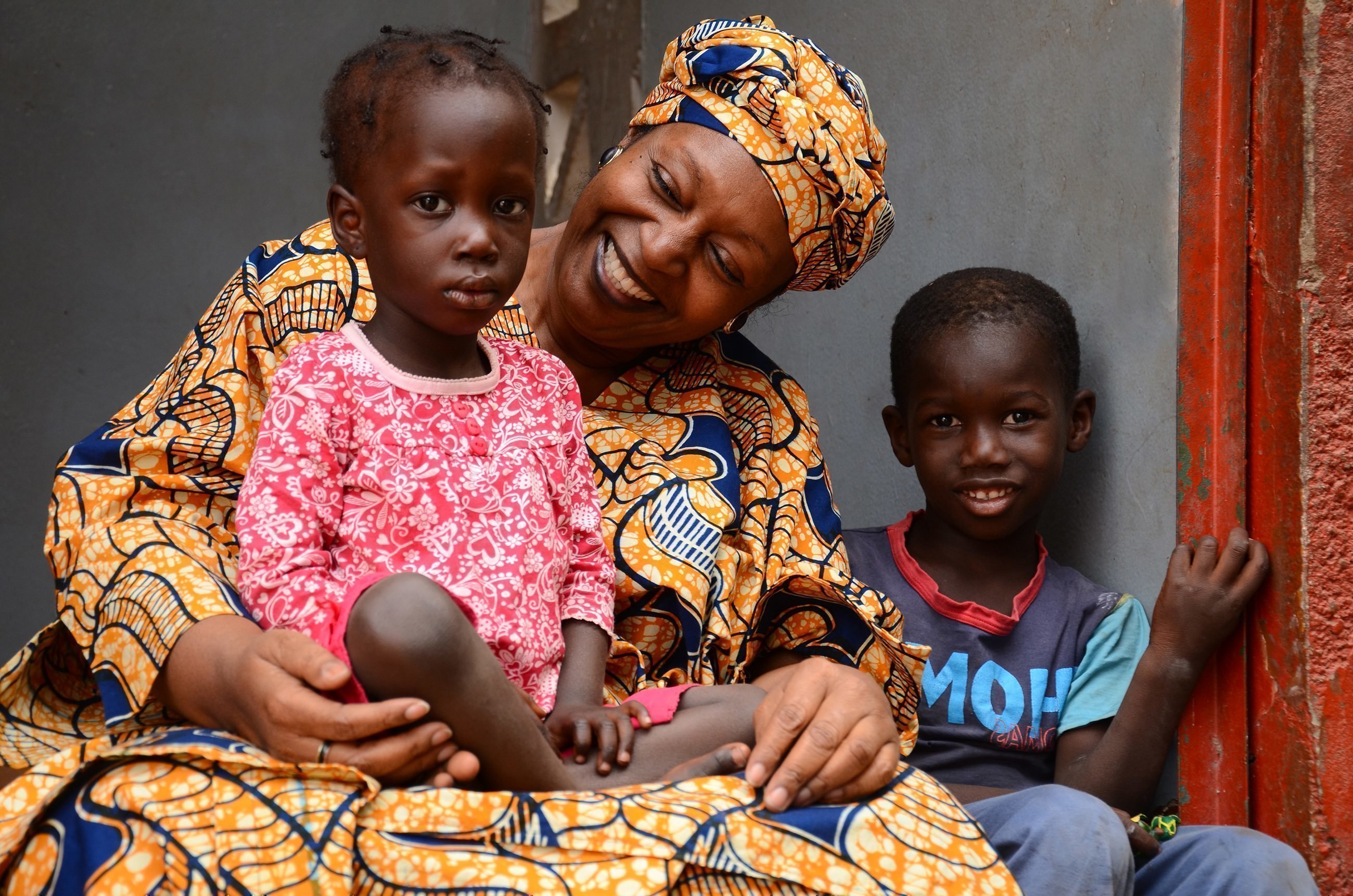
Photo Dylan Walters under license CC by 2.0
If you volunteer with orphans, you risk harming the cared children rather than using them. That’s why we decided not to start any orphanage projects on wegweiser-freiwilligenarbeit.com. Instead, we introduce other forms of volunteering to children and explain the difficulties. In some countries there is even a risk of indirectly promoting child trafficking.
Orphans are often the focus of volunteer desires
Orphans in Africa, Asia and Crystallize like no other population group Latin America the desire to help people in need. Since they not only live in developing countries and are particularly vulnerable as children, but are also deprived of the love of their birth parents, they seem to many people the ideal goal of their engagement. “I want to work with orphans somewhere. Because they have a special need. ”All volunteer organizations hear regularly. However, it usually makes more sense to choose other volunteer projects with children abroad and to leave the care of orphans to qualified, permanent employees in suitable facilities.
Danger of behavioral disorders due to short-term relationships
A fundamental problem when dealing with orphans is that these children often have no fixed caregivers in their lives and they lack affection. In this situation, the temptation is great for them to transfer their need for love to substitute people, even if they only appear in their surroundings for a short time. B. who volunteer for a few weeks or months in their home.

The farewell to the orphans can be profound traces leave
Photo by Ryanne Lai under license CC by 2.0
If the sending organization and the receiving project do not adequately explain the issues to the volunteer organization and therefore perhaps even actively strengthen the bond, the risk is particularly great that the inevitable farewell of the volunteers will be a traumatic experience. Behavioral disorders in building relationships with other people can be the result, which affect the child affected throughout their life. Very few volunteers have the necessary training to minimize this danger.
The problem of repeatedly breaking up built relationships also exists with volunteers who work with orphans for 12 months during a voluntary service such as weltwärts or IJFD, and even with permanent employees who can also change. That is why it is becoming more and more a general consensus that orphans should only be placed in homes as a last alternative. According to widespread opinion, growing up is e.g. B. in the extended family association or in foster families makes much more sense. Some countries, such as B. Rwanda, are already changing their welfare system accordingly.
Orphanages are in some places part of the problem, not the solution
Nevertheless, there are still understaffed orphanages with committed employees who are aware of the disadvantages of their institution, but which the children are still unable to put on the street because there are not enough alternatives. So why not treat these structures as responsible partners and let them weigh the pros and cons of working with Central European volunteers?
Unfortunately, the basic assumption that orphanage operators primarily have the interests of children in mind is no longer justified in a growing number of regions. Take Cambodia in Southeast Asia, for example: according to one of the people responsible for UNICEF investigation 3 out of 4 children have at least one living parent in institutions in the country known as orphanages, and the number of orphanages has multiplied in recent years. There are similar reports. B. also from Nepal and Uganda (East Africa).
Often responsible for this are businesspeople who open care institutions out of profit and populate the children of poor families from mostly rural regions. The biological parents are made compliant with promises about better education and care. However, the operators are primarily interested in their own wallet, which they either fill with direct donations or with the subsidies that sending organizations pay for the presence of Western volunteers. Sometimes religious extremists are at work. Even responsible organizations do not always succeed in separating the wheat from the chaff at their local project partners, since official registration due to corruption and inadequate controls is often not a guarantee.
Incidentally, this also applies to the other sources of income for the orphanages and children’s homes:
- direct donations, also from well-meaning, charitable organizations or church congregations, which, like volunteer organizations, are duped by the operators
- attending performances at the orphanage
- buying handicrafts and other items made by the children
We generally advise not to support the myth of “orphanage”, but rather to support initiatives that help children stay in extended family groups or in foster families.
A study by the Office for Public Welfare in Ghana in 2009 even assumes that 90% of the children in the “orphanages” of this country in West Africa are technically not orphans. In Ghana there is another phenomenon that the author David Rössler describes in a book: Part-time orphanages in poor, rural communities are only filled with children if there are Western volunteers who generate income for the village community. After their departure, the pseudo orphans return to their families who live in the same place. In such cases, there are not the same binding problems described above and the participation fees do not go into the pockets of child traffickers, but the volunteers’ project to help is perverted and exploited here.
For example, the desire to help children in special need even perversely increases the need, since pseudo orphanages offer themselves to the volunteer organizations as project partners for an increasing number of volunteers. Fortunately, there are alternatives for anyone who wants to do meaningful volunteering with children.
No orphanage projects, but many other forms of engagement abroad with children

Teaching as an alternative to volunteering in orphanages
There are volunteer projects with orphans that operate with the required sense of responsibility and in which volunteers can do meaningful work. However, for wegweiser-freiwilligenarbeit.com as an independent portal, it is currently not possible to control the projects of our partner organizations.
In order not to further fuel demand, we have therefore decided not to include any descriptions of volunteer work that takes place in orphanages until further notice. In addition, our founder Frank Seidel is an active member of the Better Volunteering Better Care network.
If you still want to work with children during your stay abroad or volunteering, there are plenty of other options.
Children with parents or other permanent caregivers also need support:
We are convinced that well-organized volunteering offers advantages for everyone involved: the local project partners and the children in care, the volunteers themselves and also society in general, since flexible volunteering makes an important contribution to development education. So go ahead, do flexible volunteering!
Photo courtesy of Africa & Asia Venture.
Tell your friends about "Volunteering in the orphanage: why we have no orphanage projects" :
RELATED ITEMS
-

Life in an orphanage in Africa – streetkids international e
Since July 1st, 2009 all children live happily together and safely on our property in Mwandege, on the edge of Dar es Salaam. Are currently…
-

Volunteer work from 16, fsj abroad at 16, 17, under 18
Volunteering abroad from 16 or 17, is that possible? Many young people and their parents regularly ask themselves this question when they are minors…
-

Donations for children in Africa – SOS Children’s Village Switzerland
The hunger crisis in Africa has reached dramatic proportions for the population. Millions of children in particular suffer from malnutrition and…
-

Voluntary service abroad 2020, 2021 (Africa, Asia, South America, Europe)
If you want to get involved as a volunteer abroad, you will find a colorful jumble of regulated volunteer services,…
